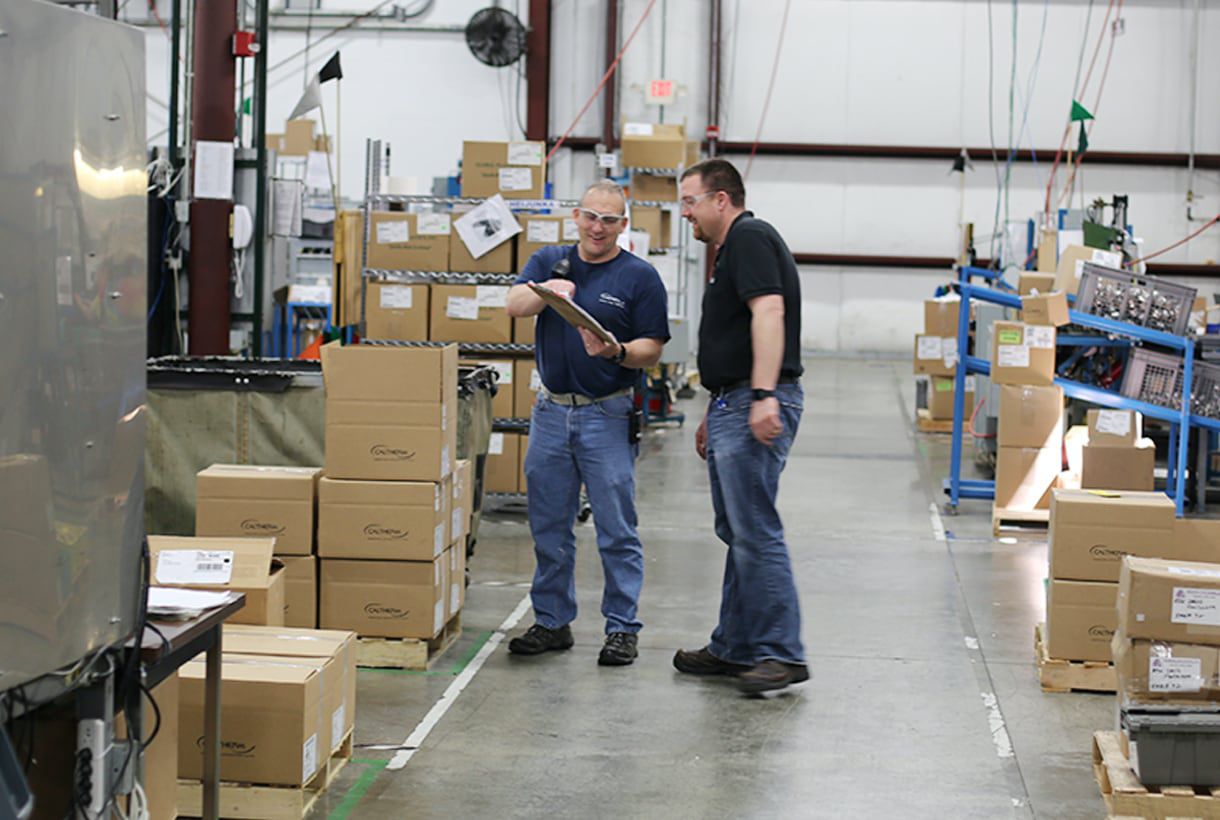Even though cloud ERP has been able to gain traction across most industries and company sizes, manufacturers have been notoriously slow to come on board.
Manufacturers were first to utilize ERP itself, but have been somewhat reluctant to move away from what has worked for them in the past. I experienced this firsthand last year when I presented some of my research on cloud ERP to a group of manufacturing-based IT executives. While they were intrigued by the data I presented, including potential benefits of switching to a cloud ERP solution, they were strongly in opposition to making any changes.
But just as with other industries, time is on cloud ERP’s side in manufacturing.
Last December, at Aberdeen’s Manufacturing Summit, the opinion on cloud ERP seemed to have shifted completely. As I spoke to summit attendees, some of them Plex customers, the majority of them were keenly aware of the benefits that come along with a cloud solution.
These opinions validated what I had been seeing within my own research. Not only are manufacturers beginning to accept cloud ERP, they also understand that it is just as viable a deployment method as on-premise — and it brings along unique benefits.
For example, take the findings from my report, “The Case for Cloud ERP in Manufacturing: Alleviating Outdated Concerns.” This study noted that, while still far below many other industries, it appears that the tides may be turning in manufacturing for cloud ERP. Compare the percentage of organizations that are willing to consider a specific deployment method to the percentage of those that have already implemented that method (Figure 1). Traditional on-premise is the only model where the demand is lower than the current deployment. Are new deployments going to alter the common perception that manufacturing is hesitant to support the cloud? Why is now a good time for manufacturers to make that change?
Figure 1: Cloud Trends in Manufacturing*
*Remaining deployments are pre-configured on a hardware appliance. (Source: Aberdeen Group, October 2012)
Aberdeen’s 2012 ERP Benchmark survey identified the reasons that manufacturers would choose a cloud ERP solution (Figure 2).
Figure 2: The Tipping Point
(Source: Aberdeen Group, October 2012)
Unsurprisingly, for those in touch with common cloud perceptions, two of the top reasons causing manufacturers to move to the cloud concern costs. For example, with a cloud SaaS solution, a manufacturer with limited IT resources or one who wants to cut IT costs can still adequately support an ERP solution. This is because rather than relying on internal IT resources, these organizations can rely on the IT resources of their ERP vendor.
Additionally, organizations that are having difficulty obtaining capital funding to pay for the solution can choose the SaaS model in order to pay for ERP on a subscription basis. Therefore, they can treat the solution as an operating expense rather than a large up-front capital expenditure.
One of the other top reasons that manufacturers would consider moving to the cloud involves collaboration. By enabling employees to securely connect to the ERP solution, no matter where they are, manufacturers can ensure collaboration and constant access to data through Internet access. This alleviates the need for a virtual private network (VPN) of a traditional on-premise deployment. This can be especially important as organizations grow and become more geographically dispersed.
It should be noted that these reasons for moving to the cloud align quite well with multi-tiered ERP strategies. Data collected for Aberdeen’s "ERP in Manufacturing 2012: The Evolving ERP Strategy" found that best-in-class organizations are more than twice as likely as all others to have a multi-tiered ERP strategy with a corporate standard and a separate second-tier ERP deployment to support local business models.
In a multi-tiered ERP strategy, there is often one standard ERP implementation for the corporate offices. This would be referred to as an “administrative ERP.” Additional ERP solutions that may offer different functionality or configurations are implemented at separate locations; this would be referred to as an “operational ERP.” Oftentimes, the locations receiving an operational ERP are new business units or acquisitions. These business units often need to get up and running quickly, do not have existing IT resources and are disconnected geographically from the rest of the organization. This would be the perfect opportunity to implement a cloud solution.
What types of characteristics make up an organization that might choose a cloud ERP solution over an on-premise solution? While maybe not a result of the solution itself, it appears that organizations that choose cloud solutions perform more effectively (Table 1). Many of these metrics are extremely important in manufacturing. These organizations ship orders more efficiently, make quicker decisions, have more accurate inventories and financial reports, and enable their employees to be more effective.
That is not to say that there is no influence on these metrics from ERP; it may be that these solutions are newer and perform more effectively. What matters most is that the solutions can effectively support the business; but, all other things being equal, it appears as if cloud solutions are producing an advantage.
Table 1: Superior Performance of Organizations Using SaaS
In my mind, manufacturers that have been dismissing cloud ERP have been doing themselves a disservice. It is really all about what the solution itself can do for the organization, and the unique benefits of a cloud solution are making it an attractive option.
For more information on this subject, check out my report, “The Case for Cloud ERP in Manufacturing: Alleviating Outdated Concerns.”
Related Articles

